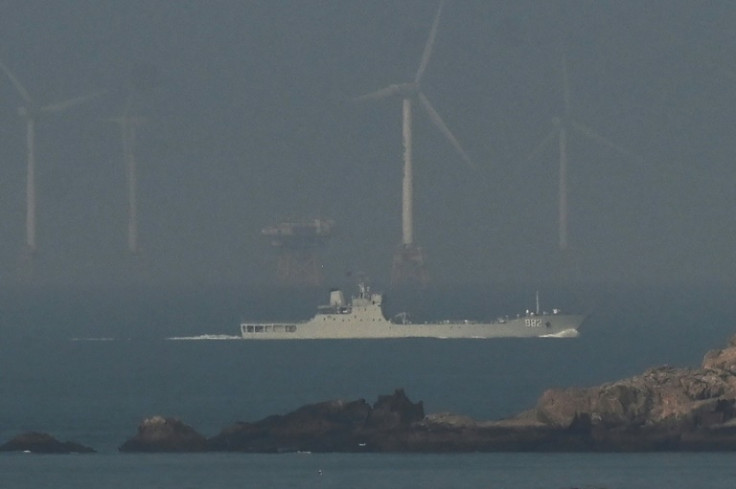China, Pakistan Conduct Largest-Ever Joint Naval Drills In Arabian Sea

KEY POINTS
- China and Pakistan hold joint maritime patrols for the first time
- The seven-day exercise commenced Saturday and will conclude on Nov. 17
- China's allies Russia and Myanmar also conducted their first joint maritime exercise days before
The navies of "all-weather" allies China and Pakistan have begun their largest-ever joint exercise in the Arabian Sea.
As part of the week-long drills that began Saturday, China and Pakistan will conduct joint maritime patrols for the first time, the People's Liberation Army Daily reported Monday.
The Sea Guardian-3 joint maritime exercise – dubbed the largest-ever joint exercise between China and Pakistan navies by state-run newspaper The Global Times – commenced with an opening ceremony at the Karachi Naval Dockyard on Saturday. The seven-day exercise will conclude on Nov. 17.
Naval ships, submarines and submarine rescue ships were involved in the exercise. The Chinese flotilla comprised naval ships, fighter jets, helicopters, a submarine and a submarine rescue ship. Chinese Marines Corps detachment members had also arrived in Karachi to take part in the drills.
"The exercise is dedicated to enhance the all-weather strategic cooperative partnership, boost defense cooperation and deepen professional cooperation," said Rear Admiral Liang Yang, commander at a PLA Navy base and the general director of the exercise for the Chinese side.
The exercise, which marks enhanced China-Pakistan collaboration in the northern Arabian Sea, comes days after the Russian Pacific Fleet and Myanmar practiced repelling attacks in their first joint maritime exercise. Moscow described the joint drill, held from Nov. 7 to Nov. 9 in the Andaman Sea on the northeastern fringe of the Indian Ocean, as "the first Russian-Myanmar naval exercise in modern history."
The maritime exercise between the two Chinese allies signals expanding relations between Russia and Myanmar amid deteriorating ties with the Western world.
The U.S. and India, who share similar concerns over China's increasing military assertiveness in the region, pledged during a "2+2" ministerial dialogue Friday to strengthen their strategic alliance by enhancing defense and security collaborations.
Defense Secretary Lloyd Austin said the threats posed by China were part of the "2+2" dialogue and that both India and the U.S. had a common view of ensuring a free and open Indo-Pacific.
"We should be able to sail the international seas and fly international airspace wherever authorized by law," Austin said after the meeting. "But our relationship is not just based on China, on the challenge that China presents. It's based upon shared values [as] two of the world's largest democracies...We've talked about a number of things, to include not only military cooperation, but scientific cooperation, space cooperation."
© Copyright IBTimes 2025. All rights reserved.






















